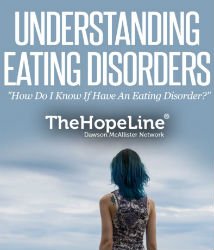Treatment options (therapy, medication, hospitalization)
Treatment for eating disorders typically involves a combination of therapy, medication, and in some cases, hospitalization. The specific treatment plan will depend on the type and severity of the eating disorder, as well as the individual’s needs and preferences.
Therapy:
- Cognitive-behavioral therapy (CBT) is a type of therapy that can help individuals with eating disorders change their thoughts, behaviors, and emotions related to food and body image.
- Family-based therapy (FBT) is a form of therapy that involves the family in the treatment process, which can be particularly helpful for children and adolescents.
- Interpersonal therapy (IPT) focuses on resolving issues with relationships and communication that may be contributing to the eating disorder.
- Dialectical behavioral therapy (DBT) which can be beneficial for individuals who have co-occurring mental health disorders such as borderline personality disorder.
Medication:
- Antidepressant medication can be used to treat depression, anxiety, and other mood disorders that often co-occur with eating disorders.
- Anti-anxiety medication can help manage symptoms of anxiety.
- Medications that can help reduce binge eating and purging behaviors
Hospitalization:
- In some cases, hospitalization may be necessary to address severe malnutrition, electrolyte imbalances, or other medical complications related to the eating disorder.
- Hospitalization can also provide a safe and controlled environment for individuals who are at risk of harming themselves or others.
Nutrition counseling:
- Nutrition counseling is an important aspect of treatment for eating disorders. An individual with an eating disorder may require education and guidance on how to nourish the body and develop a healthy relationship with food.
Recovery from an eating disorder is a process and it may take time to achieve. It is important to have a multidisciplinary team that can provide continuity of care, and work together to address the physical, psychological and social aspects of the disorder. With the appropriate treatment and support, recovery is possible.










Recent Comments